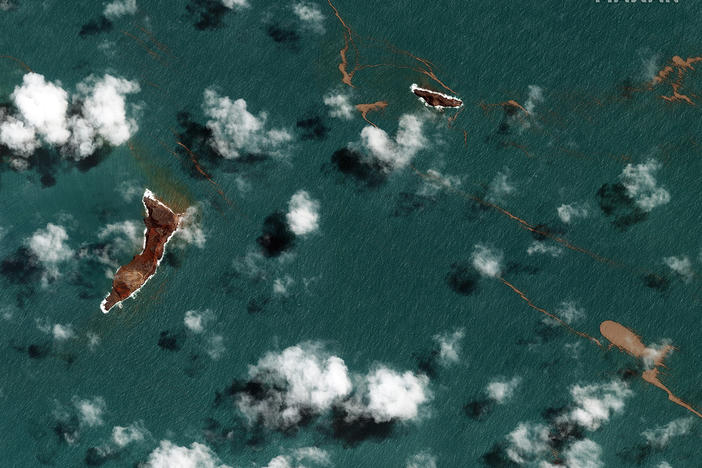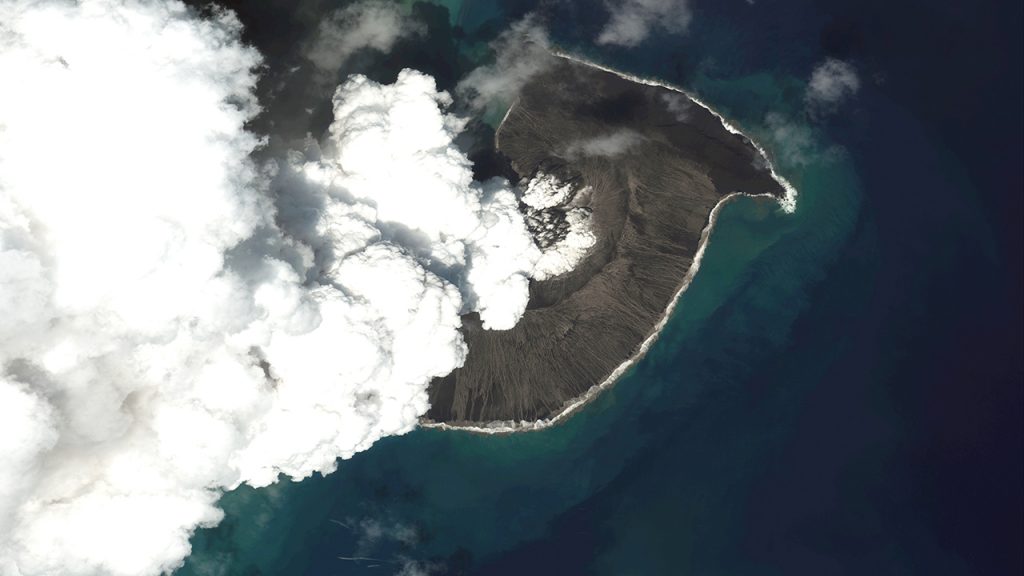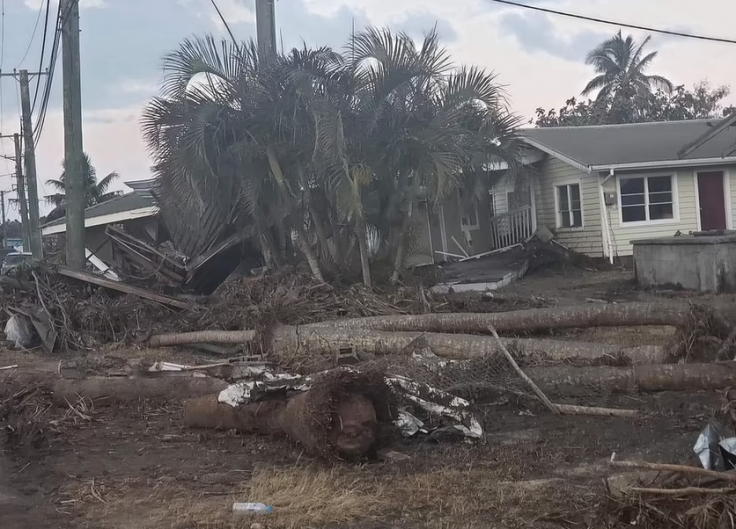According to experts and sources, the underwater volcano in the island country of Tonga exploded on Saturday with an explosive force more than 600 times that of the atomic bomb fired on Hiroshima, Japan.
According to James Garvin, head scientist of NASA’s Goddard Space Flight Center, they came up with “a number that’s around ten megatons of TNT equivalent.”

That implies the volcano outburst had the force of more than 650 “Little Boy” atomic bombs, one of which was detonated on Hiroshima, Japan, in 1945 during WWII and had an estimated force of 15,000 tons of TNT.
The Hunga Tonga-Hunga Ha’apai volcano erupted, sending shockwaves as far away as New Zealand and Alaska. It also created a massive mushroom cloud in the sky and sent tsunami waves throughout the Pacific.
Scientists believe it was one of the world’s largest eruptions in the last 30 years, as well as one of the most audible events to occur on Earth in over a century.

“This might be the loudest eruption since [the eruption of the Indonesian volcano] Krakatau in 1883,” Michael Poland, a geophysicist, said in a statement.
According to Shane Cronin, a volcanology professor at the University of Auckland, the blast was so massive because the magma inside the volcano was under immense pressure and had gases trapped inside it, with a fracture in the rock likely producing a significant pressure drop. Moreover, Cronin said that the crater was around 650 feet below sea level, which might cause a large explosion if seawater poured into the volcano and turned it into steam.
While Saturday’s eruption was tremendous, it was also quick, lasting only 10 minutes. Other large eruptions can last for hours, according to the reports.

Despite being at the volcano’s peak, Tonga looks to have escaped widespread destruction. However, hundreds of homes were damaged, and police confirmed at least three deaths on Wednesday.
According to Garvin, a volcanic eruption of that magnitude should not be anticipated in the future.
“If the past precedent for volcanic eruptions in this kind of setting has any meaning at all,” Garvin said, “then we won’t have another one of these explosions for a while.”


